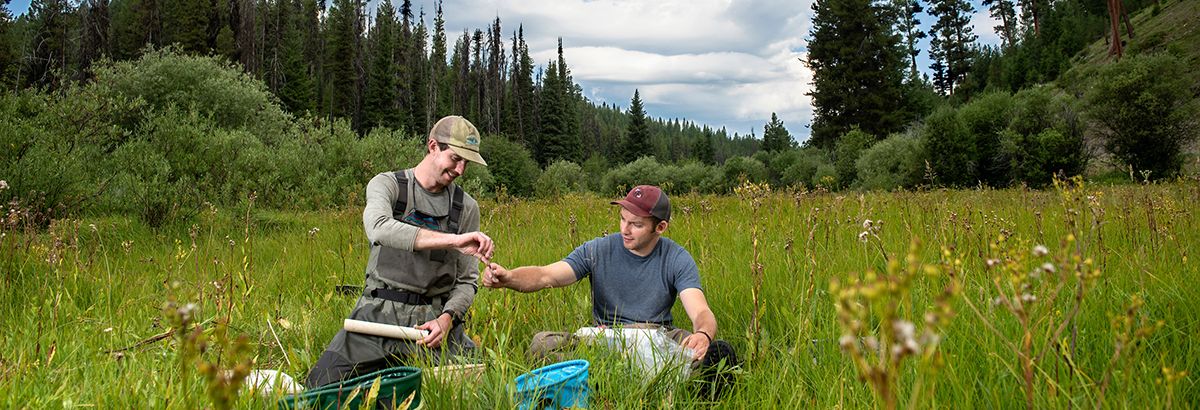Student Spotlight: Susan Teitelman

In Episode 56 of Confluence, we hear from Susan Teitelman in the Environmental Studies program. Susan shares about the importance of Indigenous knowledge concerning land management practices and the ways in which western-centric or Eurocentric land management practices can and should learn from Indigenous practices.
Story Transcript
I think that lands that are managed by Indigenous people have much better ecological outcomes and like higher levels of biodiversity. Just given the state of our environment, it's prudent for us to listen to Indigenous people who have a centuries long relationship with place and understand how to heal our ecosystems.
My name is Susan Teitelman and I just completed my first year in the Environmental Studies graduate program.
I moved to Montana in 2013 and just, you know, I studied herbalism and so I got really connected to like the plants of this area and started to feel really connected to this place. And that's kind of what led me to want to learn more about like, like the original owners of this land and their relationship to place and the Indigenous experience. I'm interested in the intersection between Indigenous knowledge and Western science. I think that Indigenous science or Indigenous knowledge has a lot to teach Western science. For example, if you're looking at like Indigenous land management practices, they incorporate ethics of like reciprocity and respect and humility. And I think that conservation and restoration and other land management practices that are more like western-centric or Eurocentric, I think it's prudent for them to start to kind of incorporate those principles.
Last semester, I wrote a paper looking at the Jocko River Restoration, which was a restoration project up on CSKT -- the Salish and Kootenai Reservation. So, the Jocko River was pretty significant for its bull trout. The bull trout populations were declining and the river was like becoming polluted. And I think a lot of that had to do with dams that had been built and so there was this big restoration project several years ago to help bring back the bull trout and restore the river to what it once was. It incorporated like big, Western practices of restoration. So, they were using like bulldozers and that kind of thing. But then also there's just this ethic of like thinking about managing land and water holistically. And so, thinking about like what plants would traditionally grow there. And then also looking at the cultural element of it. So, they were trying to incorporate, like, traditional fishing methods. And then with that this cultural piece they were educating Salish and Pend d'Oreille children about these traditional methods of fishing and the importance of the river. They're trying to incorporate social and cultural values along with the ecological ones.
I would like to make a positive impact. And I think for me so far like learning about traditional ecological knowledge and trying to like embrace those ideas of respect and reciprocity just into my own life is important. And talking to other people about it. Because I think for all of us, you know, like we live in this world that's full of injustices. And I think if we can like take a step back and just think about, like, I don't know, respect for the land and for one another, it'll situate us in a better way.
